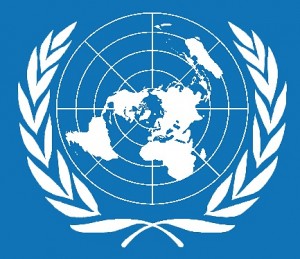UN Human Rights Power Grab
 The UN abortion debate took a turn last week when one of the top human rights committees abandoned a decades-long diplomatic tactic of using linguistic ambiguity to advance a right to abortion.
The UN abortion debate took a turn last week when one of the top human rights committees abandoned a decades-long diplomatic tactic of using linguistic ambiguity to advance a right to abortion.
The committee that monitors the 1966 Convention on Economic, Social, and Cultural Rights (CESCR) issued a “general comment” saying that abortion rights are part and parcel of “reproductive health,” a term that, because of its ambiguity, has become ubiquitous in UN language and health programs throughout the developing world where abortion is illegal.
The general comment says nations must repeal laws restricting abortion and sodomy, fund abortion through national health care, repeal foreign aid laws restricting abortion funding (a swipe at the U.S. 1973 Helms Amendment), mandate sexuality education for sexual and reproductive health services without parental consent, remove conscientious objection protections, “eradicate social barriers in terms of norms or beliefs” about homosexuality, monitor and regulate private health care providers, insurers, schools, and child-care institutions, and make sure no insurance companies opt-out of abortions and sexual health services, presumably a reference to sex change operations.
The general comment removes any doubt that abortion and LGBTI issues are conjoined, as much as nations would like to parse them out in day to day negotiations at the UN. And it is an unabashed revelation that the committee intends to enforce its claims by helping activists bring lawsuits in target countries to change national laws. It makes the sweeping claim that the treaty places obligations on nations outside their border, that they must hold private corporations accountable.
The architect of this approach, committee member Olivier de Schutter, used the same tactic while serving as UN Special Rapporteur on the right to food. The Harvard-educated Louvain University professor is a leader in the campaign to prosecute transnational corporations using a broad interpretation of “foreign direct liability” which applies to limited cases such as maritime law.
The general comment also signals what conservative legal scholars have warned is a de facto conflation of the work of the UN treaty bodies, threatening to make nations subject to treaties they never ratified. Committee member Heisoo Shin served on the CEDAW committee for eight years during the time it ramped up its abortion advocacy. The new general comment draws liberally from that committee’s work as well as the children’s rights committee, citing as authoritative its denial of parental consent.
While the committees have no authority to redefine the treaties with new obligations and their general comments have no legal weight, activists have used them in a litigation strategy that gets left-leaning courts in traditional countries where UN human rights garners respect to cite them while overturning laws protecting unborn children. Elites in Colombia, Argentina, and Spain have used this tactic.
The general comment seems to signal a turning point in UN abortion debates, and will put pro-life groups which still defend the term “reproductive health” as excluding abortion in a difficult position going forward.
The committee’s boss, the High Commissioner for Human Rights, Zeid bin Hussein, told nations two weeks ago to legalize abortion as a response to the Zika virus outbreak, though the World Health Organization disagreed and U.S. Congressmen rebuked him. This week another of Zeid’s officials issued a report saying that laws protecting unborn life put nations in violation of the UN treaty on torture.

